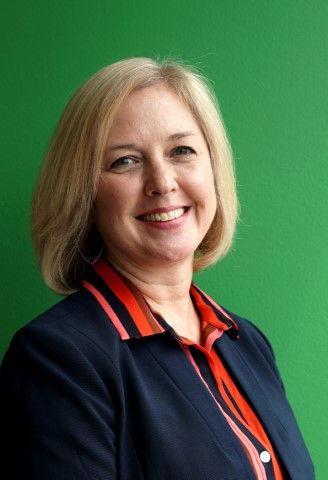- Center on Health Equity & Access
- Clinical
- Health Care Cost
- Health Care Delivery
- Insurance
- Policy
- Technology
- Value-Based Care
How Clinician-Led Partnerships Strengthen Post-Acute Care
Amy Harris

In today’s increasingly complex healthcare environment, it’s important for providers and payers to work towards the same goal: delivering high quality care as efficiently and effectively as possible for our patients. That requires more than innovation alone – it requires systems that truly support both patients and providers in real-world settings.
At OneHome, this is exactly what we do. Our value-based model works to ensure that post-acute patients receive the right level of care, in the right setting, at the right time. By bringing together centralized oversight, clinical expertise, and close collaboration with our provider partners, we aim to reduce unnecessary variation and fragmentation while helping patients experience smoother transitions and better outcomes.
Because we sit at the intersection of patients, providers, and payers, we understand firsthand that success depends on more than protocols and processes. Systems only work when they are grounded in strong relationships and clinical empathy. That’s why our approach is built around the people who know post-acute care best – experienced clinical leaders who have lived the daily challenges providers face.
These clinician-leaders help us bridge the gap between well-designed models and the realities of care delivery. They meet providers where they are, both operationally and emotionally, ensuring that OneHome’s model works for the people who rely on it every day.
Our team works side by side with home health agencies, DME partners and skilled nursing partners to ensure they feel seen, heard, and supported. And that engagement doesn’t end after the initiation of the model. It continues through regular communication, hands-on education, and proactive problem-solving that goes beyond the transactional.
At the heart of this work are our Clinical Strategy and Practice Leads, many of whom have spent their careers in direct patient care. They’ve walked the halls of skilled nursing facilities, completed home visits, and navigated the same challenges they now help solve. By bringing this lived experience to our partnerships, they reinforce one of our core beliefs: in value-based care, strong relationships are essential to driving real results.
Below, I’ve asked a few of these clinician-leaders to share their perspectives on how they translate that experience into stronger relationships, smoother communication, and deeper alignment with the providers we work with.
Can you share an example where your clinical background helped bridge a gap with a provider?
“One particularly impactful example involved a skilled nursing facility whose clinical documentation was often insufficient for accurate level-of-care designation. Recognizing the clinical and contractual implications, I led discussions with the provider focusing on both the clinical presentation of cases and the specific documentation standards required by their contract for our organization. In addition to group education sessions, I conducted one-on-one meetings with the provider’s lead clinicians to collaboratively address complex scenarios and clarify the intersection of clinical reasoning with payer expectations. I prioritized active listening and mutual problem-solving.
Over time, this open and educational approach resulted in substantial improvements in the quality and completeness of the provider’s records. Our team was then able to determine care levels with increased accuracy and efficiency, while the provider felt supported and engaged in the process.”
-Lucinda H. BSN, RN, DNS-CT, CNE, WCC, Clinical Liaison
What does a strong provider relationship look like after launch, and how do you maintain that trust over time?
“A strong provider relationship after launch is characterized by clear, consistent communication, ongoing education, and accessible direct contact with provider teams. This means regularly sharing updates, listening to provider feedback, and promptly addressing concerns. Ongoing education – such as sharing regulatory changes and best practices – helps providers stay informed and confident in their processes. Maintaining direct, open lines of contact helps ensure providers know they have a reliable partner, fostering transparency and collaboration.
Trust is maintained over time by delivering on commitments, being responsive to provider needs, and anticipating challenges before they impact service. It’s vital to create an environment where providers feel supported and valued, which in turn encourages the best outcomes for patients and the healthcare system as a whole.”
-Kendra G., BSN, RN, Clinical Liaison
How can we better ensure patients receive the right care at the right time?
“Optimal post-acute care requires a patient-centered approach that emphasizes timely and accurate assessments, evidence-based care transitions, and ongoing communication across care settings. By matching patients to the most appropriate level of care – whether it be skilled nursing or home health – we support not only improved clinical outcomes but also greater patient satisfaction and more efficient resource utilization.
Delivering the right care at the right time also helps prevent unnecessary readmissions, reduce the risk of complications, and support a smoother recovery trajectory. Supporting ongoing collaboration is essential to achieving these goals and my clinical background has enabled me to understand providers' perspectives which positions me as a knowledgeable resource for both providers and our internal team.”
-Brigette P., BSN, RN, Clinical Liaison
These perspectives highlight what we’ve seen consistently at OneHome: when clinical experience informs strategy, it builds stronger provider partnerships and creates a foundation for better outcomes. By leading with empathy, transparency, and collaboration, we can reduce barriers, support care transitions, and help patients receive the right care at the right time.
Visit Onehome.health to learn more.
Amy Harris is the AVP of Value-Based Operations of Post-Acute Care Solutions at OneHome, a Humana subsidiary specializing in post-acute care management services. Over her 16-year tenure at Humana, she has overseen operational leadership for both acute, care management and social healthcare services.
Following over a decade of direct patient care as a registered nurse, she has since played a pivotal role in establishing value-based care models in post-acute care, now spanning 27 states.
